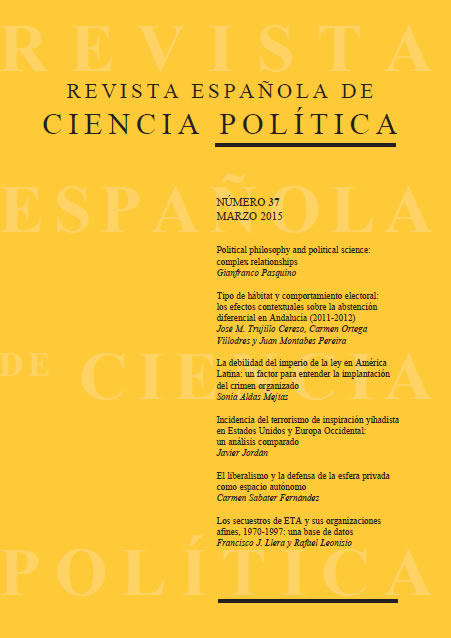Political philosophy and political science: complex relationships
Keywords:
political science, political philosophy, liberalism, communitarianism, multiculturalism, democratizationAbstract
The relationships between political philosophy and political science are complex, important, changing. They are also quite unsatisfactory. Following a brief analysis of four types of political philosophy, this article argues that the branch of political philosophy interested in describing and shaping a just society is highly relevant for what several political scientists study and write. When dealing with democracy and the processes of democratization, with the quality and the transformation of democratic political systems, political scientists can and should find a lot of interesting and useful material produced by political philosophers. Liberal democracies have won the Cold War. Now the challenge is represented by, on one side (religious), fundamentalisms (in the plural); on the other side, by the communitarians and the multiculturalists. Both groups of political philosophers declare that political liberalism, especially, the brand espoused and formulated by John Rawls, is inadequate to provide a framework for contemporary democratic regimes. This article claims that political scientists have a lot to learn from the clash of these political theories as well as from republicanism and constitutional patriotism. In this article, some indications are given and few examples are provided. So far the challenge has been eschewed and the task has gone unfulfilled.Downloads
Download data is not yet available.
Downloads
How to Cite
Pasquino, G. (2015). Political philosophy and political science: complex relationships. Revista Española De Ciencia Política, (37), 15–29. Retrieved from https://recyt.fecyt.es/index.php/recp/article/view/37647
Issue
Section
Articles
License
Copyright (c) 2015 Gianfranco Pasquino

This work is licensed under a Creative Commons Attribution-NonCommercial-NoDerivatives 4.0 International License.






